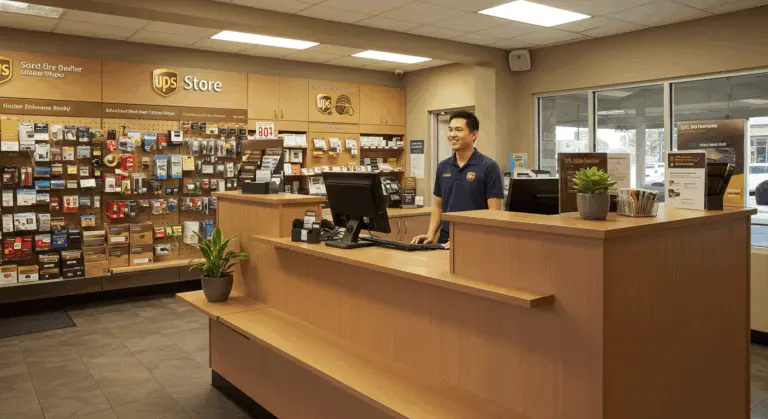End Buyer Meaning in Real Estate – Definition and Explanation
What Does The Term ‘End Buyer’ Actually Mean?
In real estate, an ‘end buyer’ represents the final purchaser in a property’s ownership chain—the individual or entity who ultimately acquires and takes title to the property. Unlike intermediaries who handle the preliminary steps of a transaction, end buyers are the destination where ownership finally comes to rest.
End buyers manifest in diverse forms, their identity shaped by context and circumstance. In a traditional real estate transaction, the end buyer might be a family purchasing a home to live in. In investment scenarios—particularly wholesaling—these buyers are seasoned real estate investors hunting for profitable opportunities. They seek properties ready for improvement: fixer-uppers destined for flipping, cash-flowing rental prospects, or diamonds in the rough perfect for long-term appreciation plays.
End buyers differ from other players because They’re not involved in the initial property acquisition dance. Instead, they enter the stage once a property has been identified, vetted, and packaged for purchase—often after a wholesaler has already secured it under contract. In wholesaling specifically, end buyers are usually cash-heavy investors who can close quickly, making them invaluable allies for wholesalers racing against assignment deadlines.
End buyers serve as the financial engine of the real estate ecosystem. They inject the capital that transforms contracts into completed transactions, enabling every player in the chain to achieve their objectives. Without end buyers, the entire investment system—wholesaling networks, fix-and-flip operations, and more—would collapse.
Key Stages in the End Buyer Process
An end buyer’s journey through real estate acquisition unfolds across several pivotal stages. Each phase requires careful attention. Mastering this roadmap empowers both buyers and sellers to orchestrate smoother, more successful deals.
Initial Consultation & Needs Assessment: Buyers begin by crystallizing their investment vision—clarifying criteria, establishing budgets, and defining property preferences to focus their search efforts.
Understanding The Relationship Between Wholesalers And End Buyers
The wholesaler-end buyer relationship drives real estate wholesaling—a symbiotic partnership where mutual benefit drives success. Wholesalers function as market scouts, specializing in finding undervalued properties and locking them down at attractive prices. Rather than purchasing these properties themselves, wholesalers sell the rights to purchase (through contract assignment) to end buyers who will actually complete the transaction.
End buyers provide the financial foundation for wholesalers. The wholesaler’s strategy is straightforward: identify distressed properties or motivated sellers, negotiate below-market contracts, then connect with investors willing to pay above the contracted price. This difference becomes their profit. Successful wholesalers cultivate networks of reliable end buyers who can act quickly when presented with opportunities.
From the buyer’s perspective, wholesalers become invaluable property scouts for end buyers. These investors—whether hunting fix-and-flip opportunities, rental goldmines, or long-term appreciation plays—benefit from the wholesaler’s deal-finding abilities to access off-market opportunities. These investors save time and resources by leveraging the wholesaler’s marketing efforts, negotiation skills, and market knowledge.
The strongest wholesaler-end buyer partnerships are built on trust and mutual benefit. Wholesalers who consistently deliver legitimate opportunities—complete with accurate numbers and realistic profit projections—cultivate fiercely loyal buyer networks. Similarly, end buyers who can close quickly, bring sufficient funds to the table, and don’t renegotiate agreed-upon terms become preferred clients for wholesalers.
Communication forms the bedrock of these relationships. Successful wholesalers become intimately familiar with their buyers’ investment preferences—location preferences, property types, condition tolerances, and return expectations. This deep understanding enables precise property-to-investor matching. This targeted approach increases the likelihood of completed transactions and builds stronger business relationships over time.
How Do Wholesalers Find End Buyers?
Building a qualified end buyer network is often the deciding factor in wholesaling success. Smart wholesalers deploy diverse strategies to cultivate and nurture buyer networks capable of rapidly absorbing their contracted properties.
Networking: REID meetings and investor meetups become hunting grounds for connecting with active, cash-ready buyers.
Are End Buyers Property Investors Or Not?
Whether end buyers qualify as investors hinges entirely on context and underlying motivation. While end buyers universally represent the final link in property transaction chains, their motivations span a remarkably diverse spectrum.
In traditional residential markets, the situation differs. Here, end buyers are typically homeowners seeking personal shelter—families prioritizing lifestyle over ledger sheets. These buyers represent the ultimate consumers in the housing market, acquiring property primarily for shelter and lifestyle benefits rather than financial returns.
Investment real estate changes this dynamic completely. In wholesaling especially, end buyers are overwhelmingly investors. These players acquire properties with clear financial goals: rental income generation, flip profits, or long-term appreciation gains. Their decision-making is driven by calculations of potential returns rather than personal preferences about where to live.
The distinction becomes clearer when comparing end users against investors. End users buy with occupation in mind—they plan to live in, work from, or personally utilize their purchase. They evaluate properties based on factors like location convenience, school districts, and lifestyle compatibility. Investors view properties through a financial lens, analyzing cap rates, cash-on-cash returns, and appreciation potential.
Wholesaling attracts investors almost exclusively. The wholesaling model—featuring distressed properties, contract assignments, and built-in equity—appeals directly to discount-seeking investors. These buyers typically have the cash and expertise to handle renovations and close quickly, which is essential for a successful wholesale transaction.
Compliance Considerations When Working With End Buyers
Navigating end buyer transactions demands meticulous attention to legal and regulatory compliance. This protects all parties while avoiding serious penalties. Real estate operates within a complex regulatory web, with requirements shifting across state and local boundaries. Understanding compliance requirements is essential.
Full Disclosure: Every known material fact about a property—defects, issues, concerns—must be disclosed to prevent legal disputes and maintain transaction integrity.
Leveraging Technology for End Buyer Transactions
Real estate has experienced a technological revolution, introducing powerful digital tools that streamline and supercharge end buyer transactions. These innovations have fundamentally transformed property marketing, deal structuring, and closing execution.
Customer Relationship Management (CRM): Advanced systems track buyer interactions, manage preferences, and automatically match properties with suitable investors, creating seamless connection workflows.
The Most Important Things To Know About End Buyers
Mastering end buyer dynamics is essential for real estate professionals—especially wholesalers and investors whose success hinges on these critical relationships. Several pivotal insights can transform how you approach and optimize end buyer relationships.
Diverse Motivations: Buyer objectives span a wide spectrum—immediate rental cash flow, quick flip profits, long-term appreciation plays, and everything in between.
FAQs About End Buyers
An end buyer represents the final purchaser in any real estate transaction—the party who ultimately takes ownership and title. This could be a homeowner seeking personal shelter or an investor pursuing financial returns.
Wholesalers function as deal facilitators—they secure properties under contract, then assign those purchase rights to end buyers for a fee, never actually taking ownership themselves. End buyers complete the actual purchase, take title, and profit through property use or eventual resale.
Not exclusively, but cash dominates wholesale transactions. Cash offers provide speed and negotiating advantages. That said, hard money loans and conventional financing also play roles in the wholesale ecosystem.
Motivations span the investment spectrum: rental income generation, flip profits, long-term appreciation plays, or simply acquiring a primary residence.
How do I become an end buyer for wholesale deals?
Breaking into wholesale deals as an end buyer requires strategic networking. Connect with local wholesalers, join real estate investment associations, and secure spots on wholesaler buyer lists. Crystal-clear communication of your investment criteria is essential—property types, preferred locations, condition tolerances, and price parameters. Secure your financing in advance—cash reserves or pre-approved loans—enabling rapid action when opportunities surface. Building relationships with multiple wholesalers increases your access to potential deals.
What should end buyers look for when evaluating wholesale deals?
Smart end buyers independently verify every detail wholesalers provide—property condition, repair estimates, ARV calculations, and title status. Conduct your own market analysis to validate value estimates and rental projections. Thorough property inspections are essential, and contracts must clearly define terms, contingencies, and timelines. Verify that the wholesaler has legitimate equitable interest in the property through a valid purchase agreement with the original seller.
Yes, a homeowner purchasing for personal residence qualifies as an end buyer. While the term dominates investment circles, it technically encompasses any final purchaser. In wholesaling contexts, however, ‘end buyer’ almost universally means investor.







